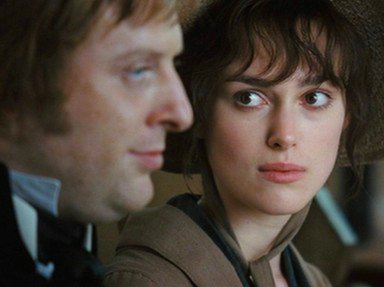Quiz Answer Key and Fun Facts
1. "I could easily forgive his pride, if he had not mortified mine."
2. "There are very few of us who have heart enough to be really in love without encouragement."
3. "Happiness in marriage is entirely a matter of chance."
4. "Whatever bears affinity to cunning is despicable."
5. "My good opinion once lost, is lost for ever."
6. "Laugh as much as you choose, but you will not laugh me out of my opinion."
7. "Next to being married, a girl likes to be crossed in love a little now and then."
8. "What are men to rocks and mountains?"
9. "My courage always rises at every attempt to intimidate me."
10. "You must allow me to tell you how ardently I admire and love you."
11. "How shall I bear so much happiness?"
12. "For what do we live, but to make sport for our neighbours, and laugh at them in our turn?"
13. "Think only of the past as its remembrance gives you pleasure."
14. "I was given good principles, but left to follow them in pride and conceit."
15. "Do anything rather than marry without affection."
Source: Author
Fifiona81
This quiz was reviewed by FunTrivia editor
looney_tunes before going online.
Any errors found in FunTrivia content are routinely corrected through our feedback system.
